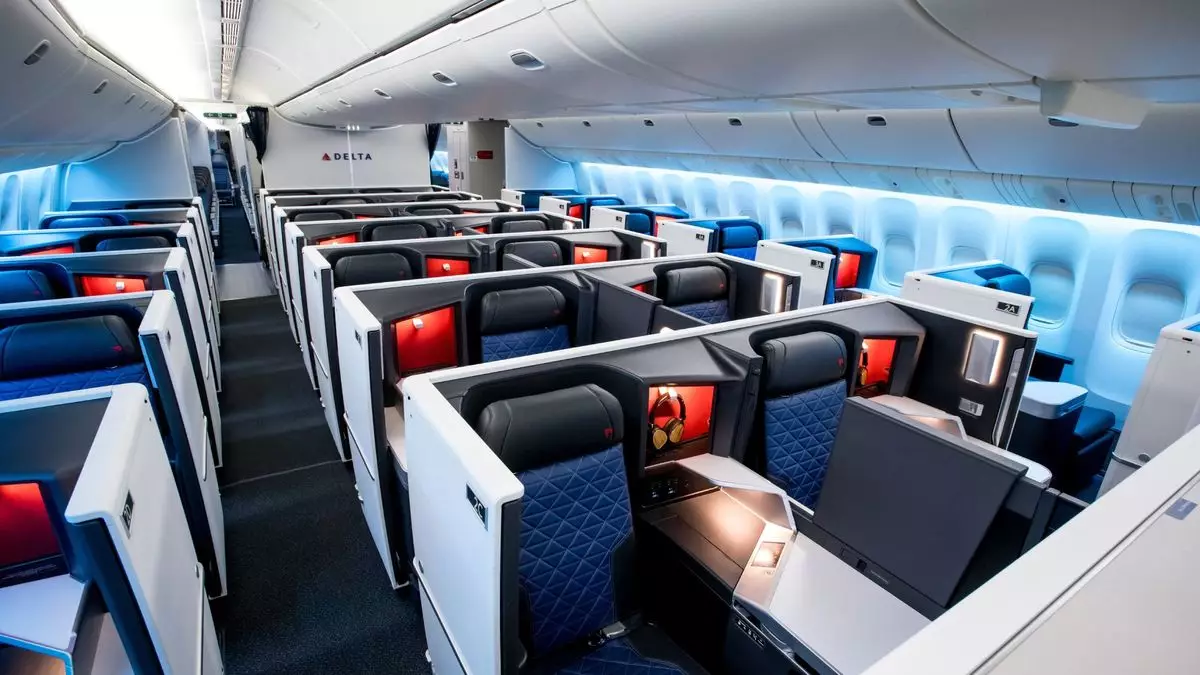Delta Airlines is boldly transforming its approach to passenger experience by diversifying its fare offerings within premium cabins. This shift reflects a deeper understanding that travelers increasingly seek tailored experiences rather than one-size-fits-all options. By creating distinct segments in their premium services, Delta aims to cater to a broader spectrum of customer preferences—whether those are flexibility, comfort, or value. This move signifies not merely a product update but a strategic repositioning that prioritizes choice and transparency, recognizing that modern travelers demand clarity and variety in how they pay for their journeys.
The airline’s emphasis on segmentation is a response to a competitive industry landscape where differentiation is critical. By more explicitly defining what each fare tier offers, Delta hopes to attract customers who might have previously perceived premium cabins as monolithic and inaccessible. This initiative goes beyond superficial branding—deliberately segmenting both domestic first class and international business service to create more options within each category. The goal is to give passengers control over their experience, aligning pricing and product features with their personal priorities, whether that be flexibility, comfort, or cost-effectiveness.
Unbundling as a Future-Focused Strategy
While Delta has been cautious about revealing plans to unbundle their premium cabins fully, the hints are unmistakable. The airline’s ongoing surveys indicate a broad exploration of how consumers would value separate options—such as individual services or features that can be purchased à la carte. This approach is a significant departure from traditional all-inclusive fare models and positions Delta as a trailblazer, akin to trends seen in the broader airline industry.
The move toward unbundling is driven by a desire to increase transparency, allowing customers to dial in exactly what they want and pay only for it. For example, the recent renaming of main cabin products into Main Basic, Main Classic, and Main Extra exemplifies Delta’s commitment to clearly delineated offerings. This enhances customer understanding and enables more precise marketing, favoring a perception of fairness and value. The segmentation promises to extend into premium cabins, potentially revolutionizing how these services are perceived and purchased, turning them into flexible and customizable experiences.
Financial Stability and Air Travel Recovery
Delta’s recent financial report showcases a resilient airline that has navigated turbulent waters. A second-quarter net income of $2.1 billion and optimistic full-year earnings projections suggest that the carrier’s strategic initiatives, including product innovation, are paying off. These solid financials provide Delta with the confidence to experiment and innovate further—particularly in the realm of customer experience layering—without jeopardizing short-term stability.
Demand stabilization has allowed Delta to adjust capacity thoughtfully, with a 1% reduction in scheduled capacity for September balancing out supply and daily traveler needs. This strategic capacity management aligns with the broader industry recovery, which is gradually moving towards a more sustainable equilibrium after the pandemic-induced downturn. Delta’s forecasted operating margins and revenue growth signal a positive outlook, demonstrating their ability to adapt to dynamic market conditions while investing in future customer-centric innovations.
Delta’s move toward segmented fare offerings and unbundling reflects a strategic vision that aims to redefine premium travel. By prioritizing clarity, choice, and customization, Delta positions itself as a leader capable of delivering both value and excellence. With strong financial footing and a clear focus on enhancing customer experiences, the airline is setting a new standard for what travelers can expect and demand from their journeys.

